Zakk Wylde talks Wylde Audio, Adele and Book Of Shadows II: "I've always loved the softer side of things as much as the heavy"
The Black Label Society hard man's sensitive side comes out to play
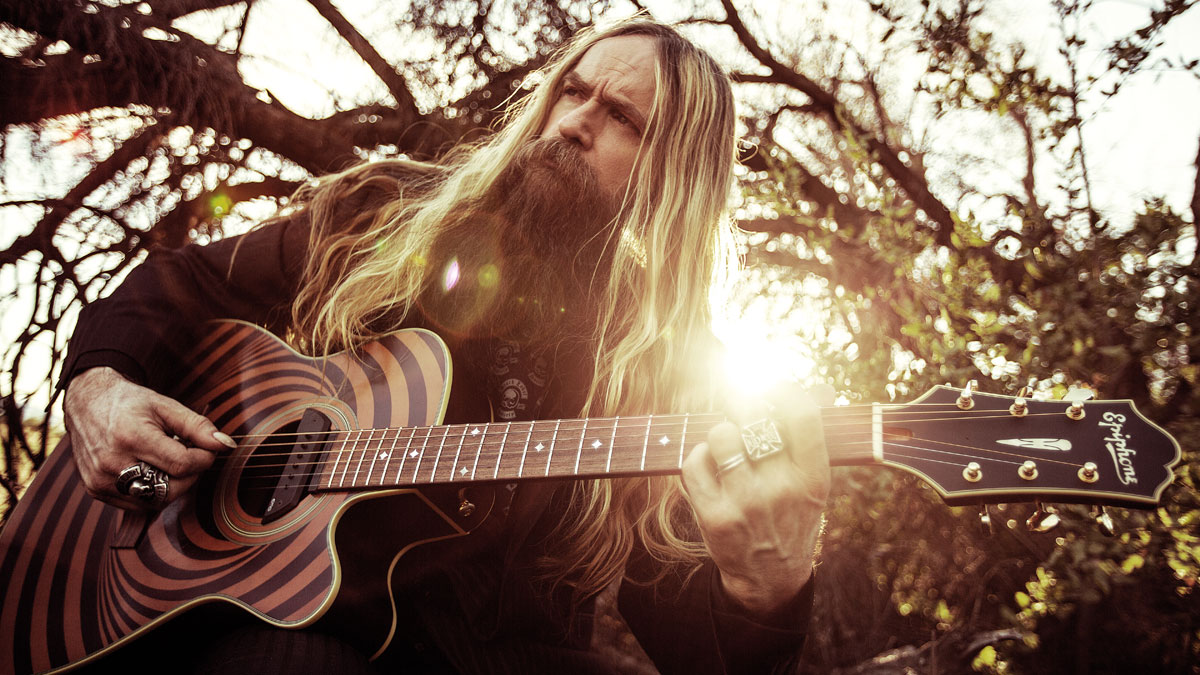
Introduction
Two decades on from unleashing his first Book Of Shadows, Zakk Wylde has put the finishing touches to its second chapter. And, just like its predecessor, the music captures the more sensitive side of a metal berserker…
There is a lot more to Zakk Wylde than eye-dissolving pentatonic runs
He’s one of metal’s deadliest mercenaries, like an ancient warlord descended from the halls of Valhalla, hellbent on burning through guitar necks like they’re made of thin air.
But as we heard on his first solo album, Book Of Shadows, his short-lived Southern rock antics in Pride And Glory or, more recently, Black Label Society’s Hangover Music, there is a lot more to Zakk Wylde than eye-dissolving pentatonic runs and hair-raising pinched harmonics.
Deep inside that Viking exterior is a man who appreciates the simplicity of a humble acoustic and a great pop hook - which is exactly why the fruits of his labours on Book Of Shadows II have more in common with Elton John than they do Judas Priest. The former Ozzy Osbourne guitarist emphasises the importance in remembering there’s a time and place for everything…
Don't Miss
Zakk Wylde on his first guitar, bar shows and brown M&Ms
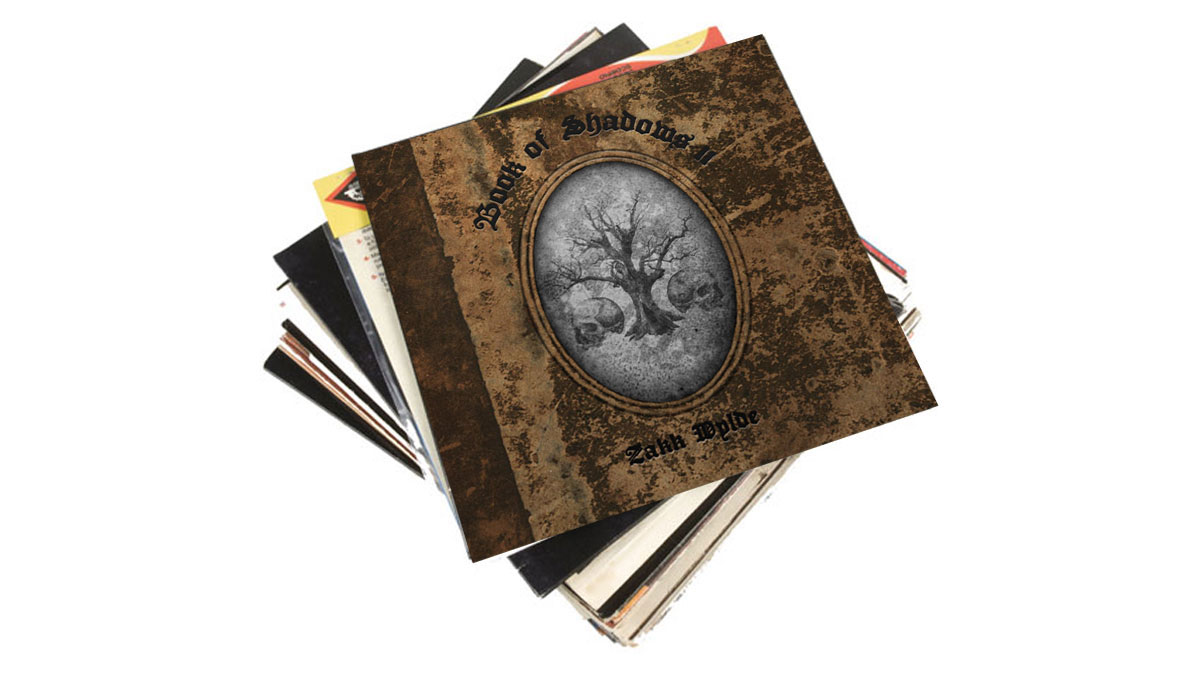
Off the beaten track
There’s very little on this album that could be described as ‘metal’. What influences did you want to explore?
“I’d say this record shows my love for the softer side of music, whether that be Elton John, The Eagles, Van Morrison, The Allman Brothers Band, Lynyrd Skynyrd, Bob Seger… as well as the mellow Hendrix stuff.
The delay was all planned out, we wanted to beat Guns N’ Roses with their Chinese Democracy
“I’ve always loved that side of things as much as the heavy music. Like with Led Zeppelin, I enjoy Going To California as much Black Dog, y’know? I love sitting by the piano or strumming on an acoustic guitar just like I love cranking my stacks. It’s a road trip record, mellow from beginning to end.”
So why did it take so long to follow up the first Book Of Shadows?
“It was all planned out: we wanted to beat Guns N’ Roses with their Chinese Democracy… That took 15 years to make, so when it hit two decades, I knew it was time! [laughs] I figured who has the money to wait another 20 years for a record, maybe Richard Branson?
“We’re gonna set the next Book Of Shadows for 25 years from now to beat our own record. Anyone who wants another one, don’t hold your breath. Or let’s hope you’ve a lung capacity like the Loch Ness Monster! He’s only come up once in 28,000 years… which is pretty amazing when you think about it!”
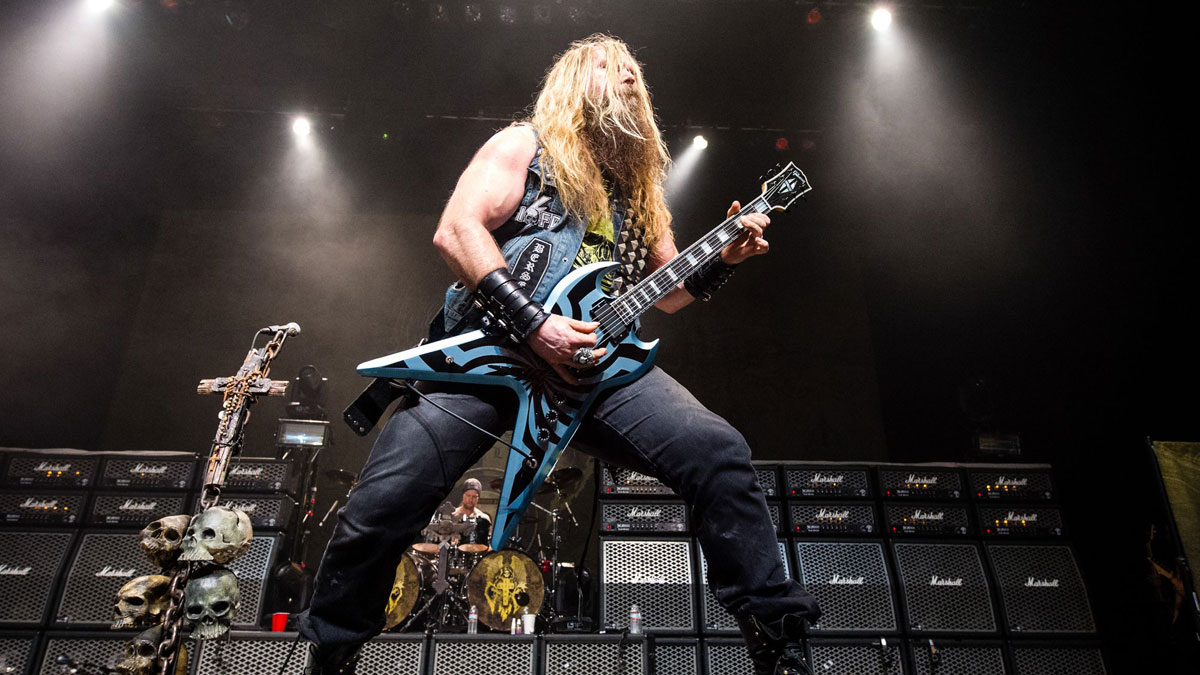
Quality counts
You’re not shy on showing your appreciation for influences outside rock. You recently revealed that you were a fan of Adele. What is that you like about her music?
“Well, if you’re talking about pure vocal talent, yeah, I’m a fan, without a doubt! You have to be a fan of anyone who is that talented in whatever field they work in. If you excel at what you do, whether it be sports or music, you deserve that recognition.
If you excel at what you do, whether it be sports or music, you deserve recognition
“And she’s definitely amazing… though I wouldn’t say she inspired this record, because I’d already made it by the time her one came out. The main reason why Adele’s become one of the biggest artists in the world and sold so many records is simple - the quality of her music is good.”
Who else on the pop side would people be surprised to learn you’re a fan of?
“You know, I love Crowded House. I listen to them quite a bit and think they’re amazing. Those brothers are great songwriters, that’s just undeniable, you can hear tons of influence from The Beatles in there. People might not expect me to say they’re a band I find consistently awesome.”
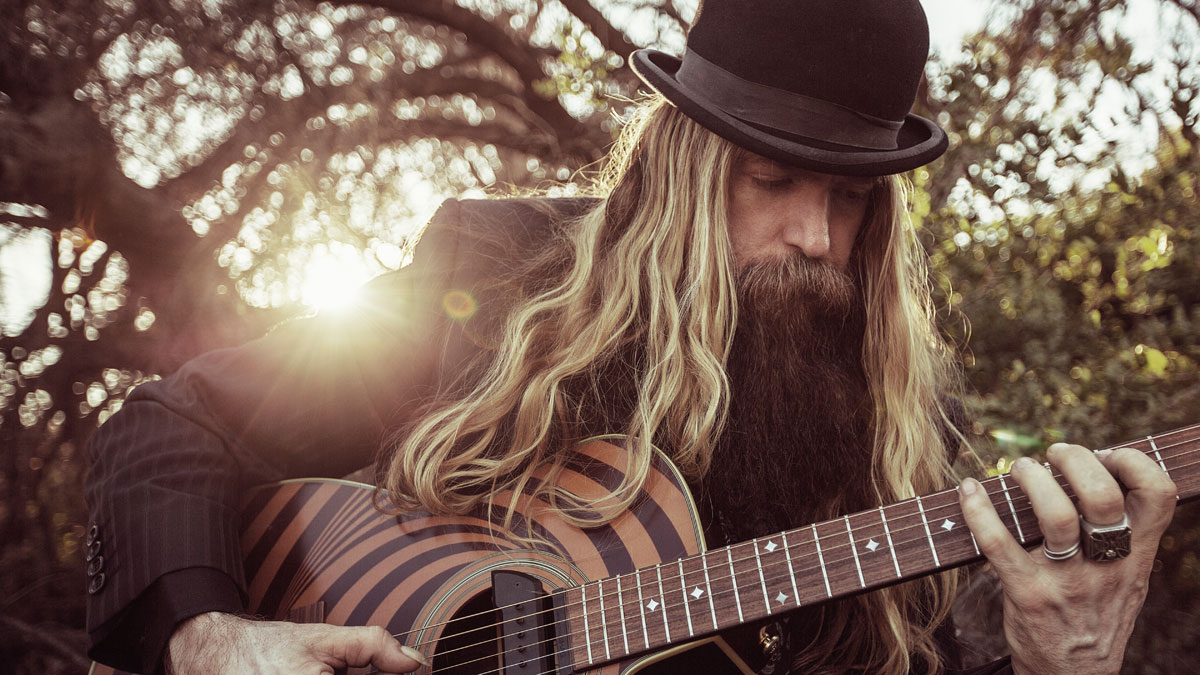
Composed solos
The guitar solos on the new album feel incredibly well-composed - is your process different when writing softer music?
“As far as the guitar solos go, they’ve always got to fit the song. The solos should be part of it - like when you hear Jimmy Page playing a solo, it’s always part of the song. Same with Randy Rhoads, when you hear his solos you can tell what song they’re from, and the same goes for The Eagles.
The way I look at it, at least they know me for being able to do the dishes and the laundry!
“I write solos like how I write lyrics, I sit down and compose something. Some of my solos, say Darkest Days [from 2011 BLS album The Remains Not The Same], I could play to you backwards because even when I play it live, it’s exactly the same. They have parts - like a beginning, a middle and an end, y’know?”
Did you ever need to force yourself to hold back on those quieter, subtler moments?
“As far as holding back, I wouldn’t say there was any of that. I was just playing for the song, like I did on Mama, I’m Coming Home. There was no need for any shreddin’ on a track like that. And I remember after I played that solo, I felt really happy with how it fit into the song.
“For me, it’s always been about the music and lyrics, there’s got to be depth to it. My music is a by-product of what I listen to, and all my influences came out big-time on this.”
Do you ever feel pigeonholed as the pentatonic shred guy?
“As far as I’m concerned, it’s like playing James Bond in a movie… everyone will always think of you as James Bond, but you can still do other movies. The way I look at it, at least they know me for being able to do the dishes and the laundry!
“Maybe not so much the laundry, but they sure like the way I do my dishes. If people think, ‘Oh Zakk, he just does dishes…’ then this is me saying, ‘I do laundry as well!’”
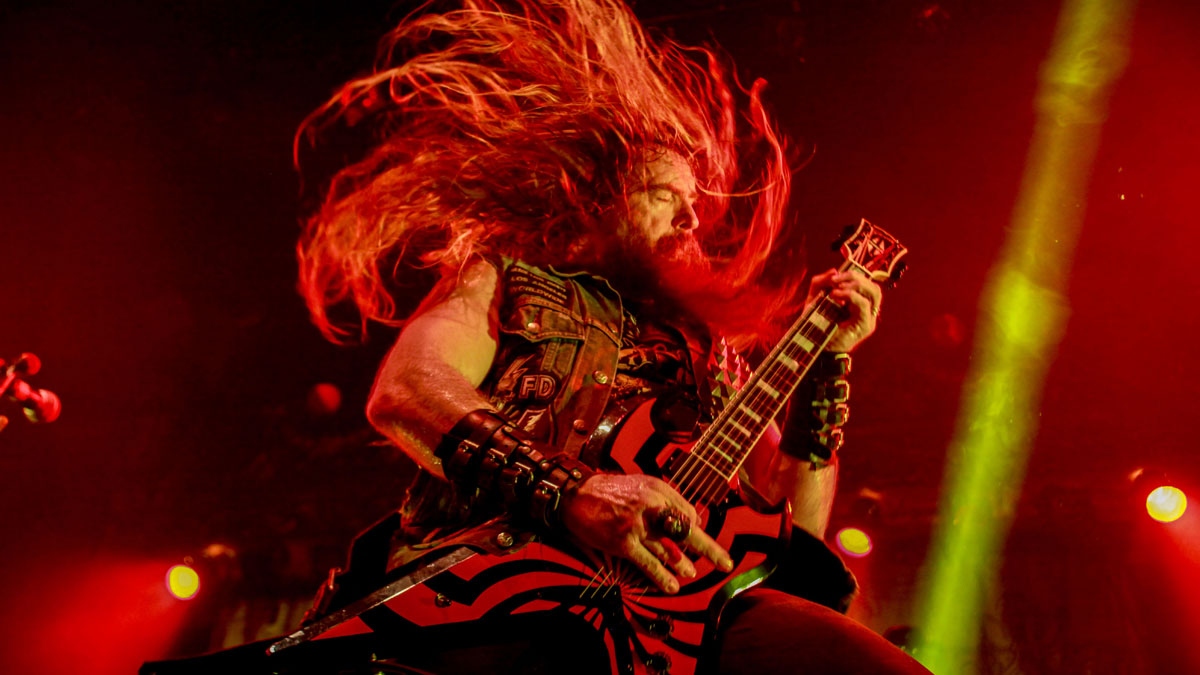
Got the blues?
And as for the Tears Of December solo - do we detect a hint of Joe Bonamassa in your playing?
“I’m buddies with Joe and he’s a phenomenal player. I think what’s so awesome about him is how much of a great ambassador he is for the blues and the entire history of it, getting it out there for people to discover. He can play blazingly fast as well, his technique is awesome. So I guess you could say that was in the same vein or style, totally.”
I remember my old guitar teacher showed me Jimi’s chord voicings
There are some gorgeous Hendrix-y chords on Lay Me Down and Lost Prayer… where did you learn how to play like that?
“I remember my old guitar teacher showed me Jimi’s chord voicings - there are certain inversions you can do where you have little hammer-ons and trills off the chord itself. You bar with your index finger and use the other ones to do all the different bits.
“It’s similar to the chords Jimi used on The Wind Cries Mary or his version of Like A Rolling Stone. And if you remember the Pride And Glory song Machine Gun Man, that was in the vein of Jimi as well. Whenever I hear chords like that, I know instantly it’s come from him!”
Do you see it as more of CAGED system kind of approach?
“Well, I guess so… to me, it’s more about how the chord voicing works in context. Like with [guitar book author] Ted Greene, he’s the chord chemist who showed everyone how you can take a simple C chord and use different inversions for all sorts of tones and colours. That’s the beauty of inversions!”
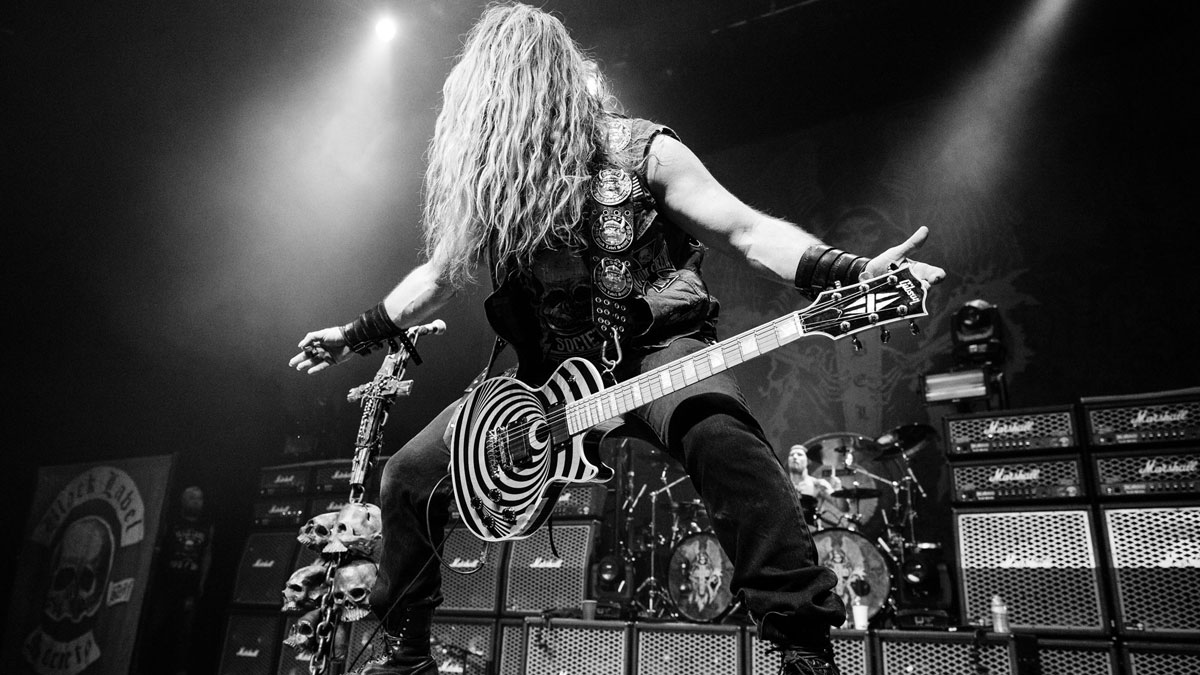
Building blocks
Darkest Hour has a guitar solo that just seems to build and build. How does one go about composing something like that?
“To me, the king of that stuff is Neal Schon from Journey… building is what he’s all about. His technique is amazing but he’s so melodic: he always plays this tasty, ear-pleasing stuff. Then he’ll sneak in some blistering insane speed lick as well, which I’m a big fan of.
Discovering new things is so important, it allows you to implement more into your playing
“Randy Rhoads did it the same way, building and building it up. Like Goodbye To Romance, Revelation (Mother Earth)… all those solos. Listen to Hotel California and Stairway To Heaven, they both very composed. That’s what I’m doing when I’m writing - even with the heavy stuff - I sit down, listen to the backing tracks and compose something. Then I learn it until I can play it back in one take.”
Yesterday’s Tears is very reminiscent of Tuesday’s Gone by Lynyrd Skynyrd. Was that a conscious decision?
“Totally, especially the part when it goes to the A, the E and the D chords. That’s Skynyrd, without a doubt! And that’s how you learn. I love all the history, when you discover your favourite band’s favourite bands… Led Zeppelin got me into Muddy Waters and BB King. When I heard those were the players that Jimmy Page was getting it from, I had to go back and check them out.
“Like with Joe Bonamassa, he’s great at telling you where everything’s coming from, and all these younger kids can learn about Buddy Guy or someone they might not know about through the show. You have to research into stuff like that - discovering new things is so important, it allows you to implement more into your playing. Then it’s in your vocabulary and eventually becomes part of your DNA.”
Do you have any tips for players that want to get into the more chicken pickin’, country style of playing?
“Get as much information as you can on Albert Lee. That’s the ultimate starting place right there. Watch the videos and listen to his playing, because he’s phenomenal at that stuff. Then you have the Hellecasters, Jerry Donahue and all those guys... they’re amazing players, too. Just go on YouTube and learn how to apply chicken pickin’ and banjo rolls, and soon you’ll fi nd there’s another crayon to add to the arsenal!”
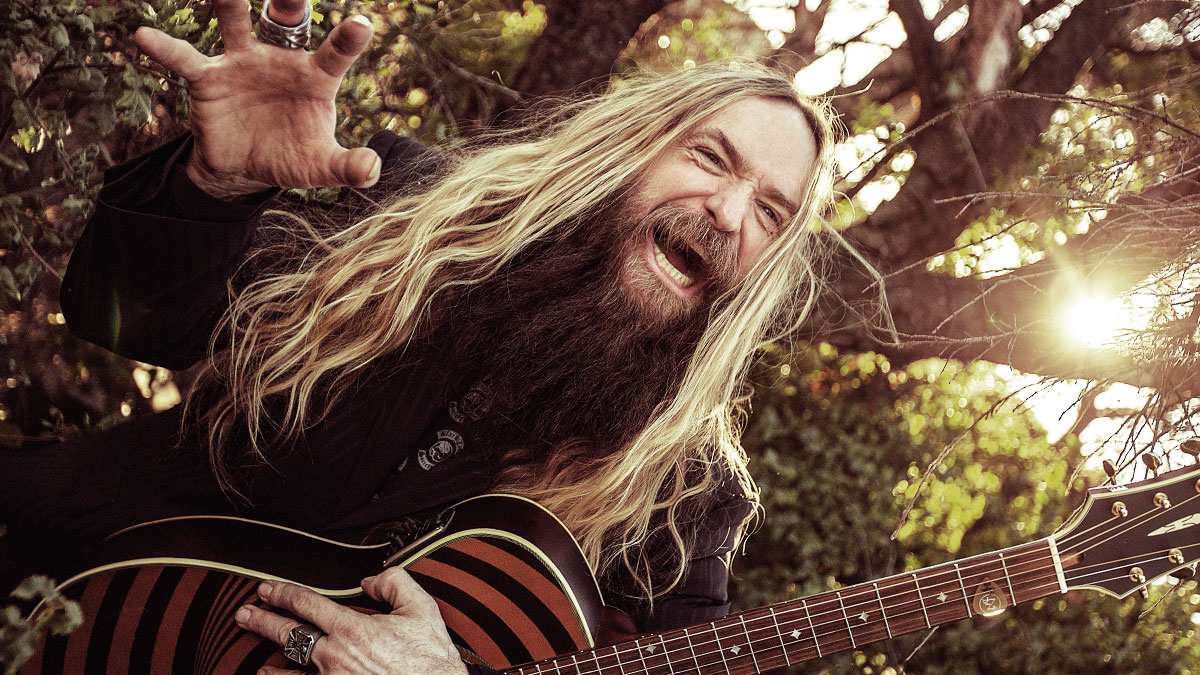
Going Wylde
Some of the songs have some almost single coil-sounding guitar tones. What were you using then?
“I’m actually working on some new pickups right now - that’s what you’re hearing on Lost Prayer. I have a double-coil that has a lot of single coil stuff going on, it gets that liquid-y Robin Trower kinda sound. He’s one of my favourite players, too!”
And, as for gear, would we be right in guessing you stuck with your new line of Wylde Audio guitars exclusively?
I still have my Gibsons, I’ll always have them. But for now, they’re retired
“I used the Wylde Audio prototypes - my Odins mainly, and Vikings Vs on tracks like Sleeping Dogs, where I needed a whammy bar. All the electric tones are those guitars. I’ve been rolling with them for the past year since launching at NAMM, so that’s what I used for the record.
“I still have my Gibsons; I’ll always have them. But for now, they’re retired, and on the road we’ve been just using the Wylde Audio guitars for the most part. Same with amps, I used my amp prototypes all over the record, too.”
Can you tell us more about the acoustics we can hear on the record?
“My buddy Garren Dakessian has this company called Loucin Guitars, he’s the guitar builder over there. He’s made me a few acoustics over the years, so I used those on the record. I also used some prototypes for Wylde Audio acoustic guitars, which we’re working on, too.”
That’s new pickups, guitars, amps… next you’ll be telling us there’s a line of pedals coming out!
“Well! The phaser you hear on the record is a pedal I’ve been working on, it’s not my normal one. So there’s that prototype, plus are a few other designs I’ve made. I also used my signature distortion and wah, plus my Rotovibe and Uni-Vibe for the Leslie tones. I’m playing Hammond on the record as well, so you could say there’s a lot going on. But yeah, we’re gonna be making pedals pretty soon too! Keep your eyes peeled...”
Zakk Wylde's Book Of Shadows II is out now via Spinefarm Records.
Don't Miss
Zakk Wylde on his first guitar, bar shows and brown M&Ms
Amit has been writing for titles like Total Guitar, MusicRadar and Guitar World for over a decade and counts Richie Kotzen, Guthrie Govan and Jeff Beck among his primary influences. He's interviewed everyone from Ozzy Osbourne and Lemmy to Slash and Jimmy Page, and once even traded solos with a member of Slayer on a track released internationally. As a session guitarist, he's played alongside members of Judas Priest and Uriah Heep in London ensemble Metalworks, as well as handling lead guitars for legends like Glen Matlock (Sex Pistols, The Faces) and Stu Hamm (Steve Vai, Joe Satriani, G3).


